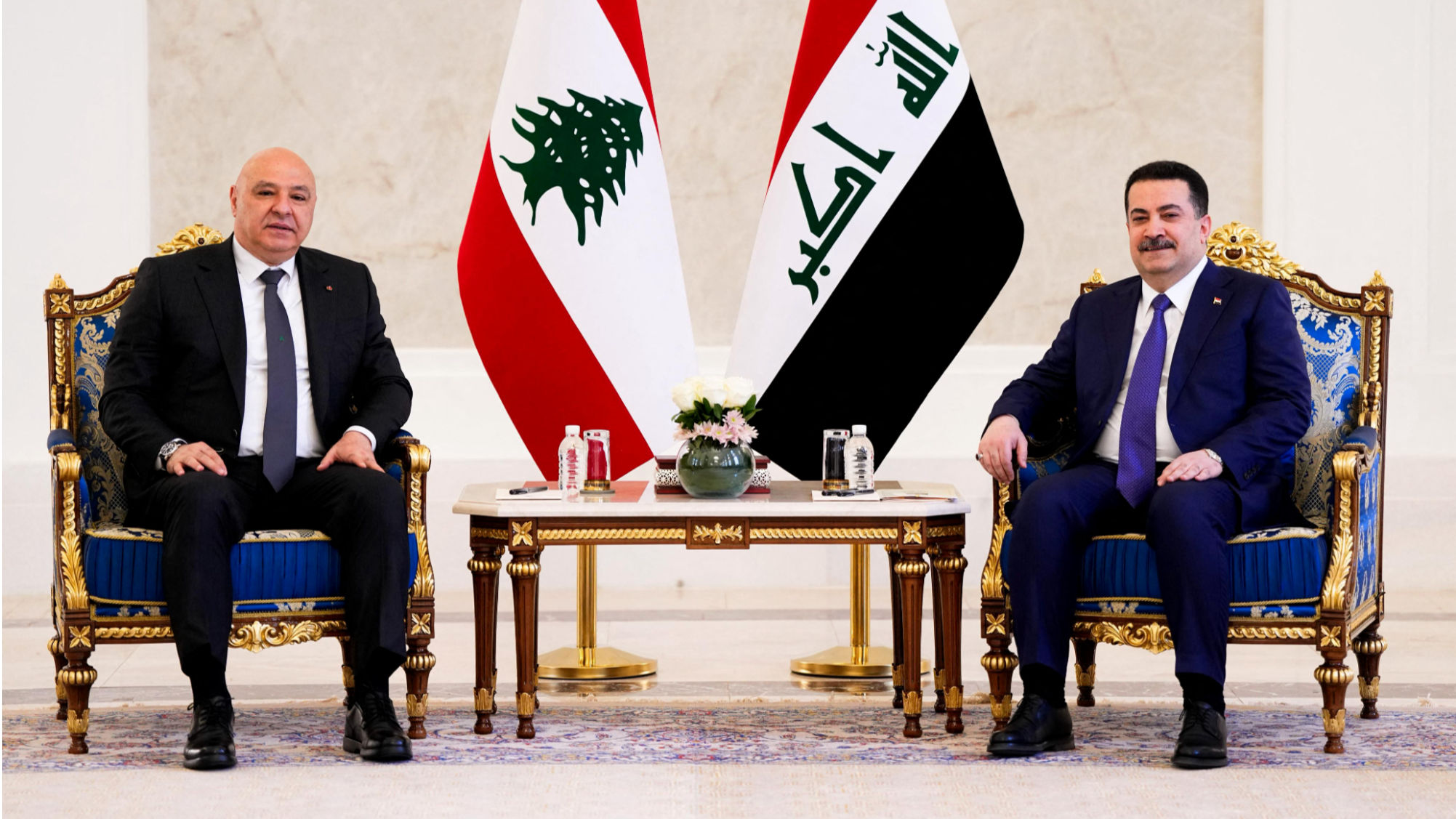
BAGHDAD - Iraqi Prime Minister Mohammed Shia' al-Sudani met here on Sunday with visiting Lebanese President Joseph Aoun on bilateral ties and regional developments.
Al-Sudani affirmed Iraq's commitment to supporting Lebanon, strengthening its state institutions, standing by the Lebanese people, and rejecting any violation of sovereignty or foreign interference that seeks to undermine Lebanon's independent will, read a statement issued by al-Sudani's media office.
For his part, Aoun praised Iraq's principled and practical stances toward Lebanon, particularly during the difficult times the Lebanese people have endured, and Iraq's support for Lebanon's sovereignty and stability, read the statement.
READ MORE: Jordan, Iraq, Syria, Lebanon join hands against drug trafficking
The two leaders later held a joint press conference, during which al-Sudani emphasized that Aoun's visit to Iraq represents an important opportunity to enhance bilateral ties in security, economy, and society, especially in light of pressing challenges facing the region, according to a separate statement by al-Sudani's media office.
Al-Sudani also reiterated his condemnation of the repeated violations of Lebanese sovereignty, which constitute a breach of international law, read the statement.
Meanwhile, according to posts published by the Lebanese Presidency on social media platform X, Aoun stressed during the joint press conference the need to prevent external interference in all aspects, confine arms to the state, and fight corruption at all levels, among others, to secure national identity.
READ MORE: Iraq summons Lebanese envoy over president's remarks on paramilitary forces
He also called for "a system of common Arab interest," one "institutionalized and codified within the framework of bilateral and joint agreements," as well as "an Arab common market," according to the posts.


